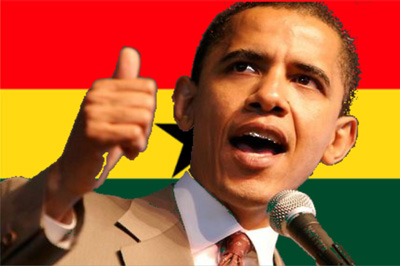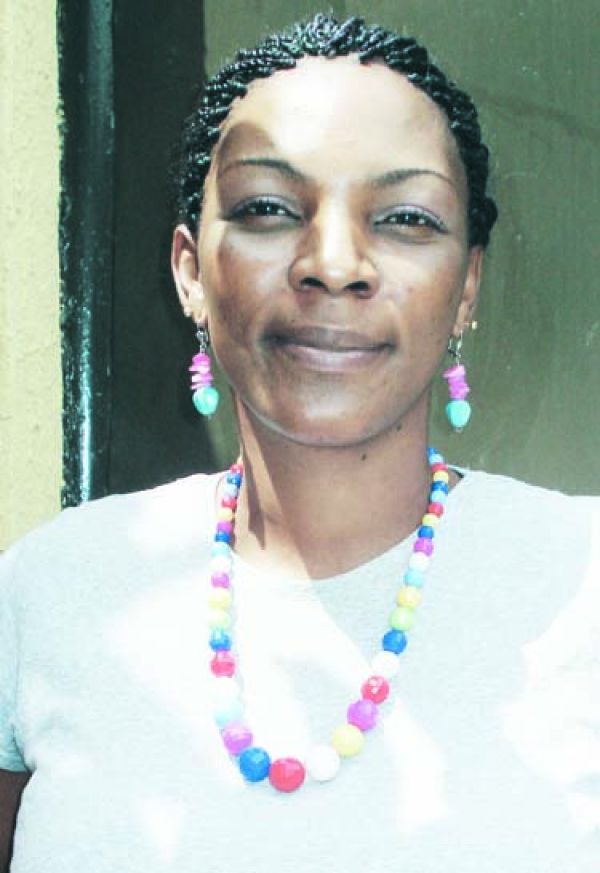
US President Barack Obama delivered a three-page address two days ago to an audience made up of largely members of the Ghanaian parliament. It took place at the International Conference Centre, Accra. Also in the audience were Ghananian President John Atta-Mills, two former Ghanaian presidents
___ Jerry Rawlings and John Kuffour.
Former Lagos State Governor Bola Tinubu and two of his former commissioners
___Mr. Dele Alake and Mr. Tunji Bello ___also listened to Obama speak. So was renowned essayist Prof. Adebayo Williams.
As Nigerians, Tinubu, Alake, Bello and Williams, perhaps, wished it were their country that Obama was speaking about in glowing terms. In the relatively long speech, Obama only mentioned Nigeria once and it had nothing to do with the President Umaru Yar’Adua administration. Rather, he was commending an inter-faith effort of Christians and Muslims to confront malaria. He also mentioned Lagos in passing when he said: “With strong institutions and a strong will, I know that Africans can live their dreams in Nairobi and Lagos; in Kigali and Kinshasa; in Harare and right here in Accra.”
The first African-American US President said he was proud that “this is my first visit to sub-Saharan Africa as President of the United States” and “I have come here, to Ghana, for a simple reason: the 21st century will be shaped by what happens not just in Rome or Moscow or Washington, but by what happens in Accra as well.”
Of Ghana, he said again: “You show us a face of Africa that is too often overlooked by a world that sees only tragedy or the need for charity. The people of Ghana have worked hard to put democracy on a firmer footing, with peaceful transfers of power even in the wake of closely contested elections. For that the minority deserves as much credit as the majority. And with improved governance and an emerging civil society, Ghana’s economy has shown impressive rates of growth.”
He, however, regretted: “Despite the progress that has been made – and there has been considerable progress in parts of Africa – we also know that much of that promise has yet to be fulfilled. Countries like Kenya, which had a per capita economy larger than South Korea’s when I was born, have been badly outpaced. Disease and conflict have ravaged parts of the African continent. In many places, the hope of my father’s generation gave way to cynicism, even despair.
“It is easy to point fingers, and to pin the blame for these problems on others. Yes, a colonial map that made little sense bred conflict, and the West has often approached Africa as a patron, rather than a partner. But the West is not responsible for the destruction of the Zimbabwean economy over the last decade, or wars in which children are enlisted as combatants.”
Even though he did not directly say that the West has nothing to do with the selection that passes for election in Nigeria, it is inherent in the fact that for his first visit to sub-Saharan Africa, he preferred Ghana, which he praised for deepening democracy with smooth transfer of power after election year. This development once made former Head of State, General Yakubu Gowon, ask the country to learn from Ghana. Gowon even urged the Independent National Electoral Commission (INEC) to take a cue from the Ghana Electoral Commission. Nobel laureate Prof. Wole Soyinka also said it was a shame that Ghana had conducted two successful transitions, while Nigeria is still groping in the dark.
Said Soyinka: “Ghana has had two elections now, impeccable elections…Peaceful, respectable national election, the way election should be. It is a sad moment.”
Since 1999 when the country returned to democracy, almost every election held was adjudged corrupt by both local and international observers. The elections were characterised by abuses, such as compilation of fictitious names; illegal compilation of separate voters’ list; multiple registration of voters during the revision, illegal printing of voters’ cards; registration of unqualified persons; illegal possession of ballot boxes, stuffing of ballot boxes; falsification of election results; printing of ballot papers and voting by under-aged children.
Others include printing of Forms EC and EC8A; deliberate refusal to supply election materials; results announced where there were no elections; unauthorised announcement of results; harassment of candidates’ agents or the electorate; change of list of electoral officials; tampering with figures and switching of votes; and box switching and inflation of figures.
The election that ushered in civil rule was conducted by the INEC led by the late Ephraim Akpata. The election was not without its flaws. The Alliance for Democracy (AD) and All Nigeria People Party (ANPP) alliance fielded AD’s Olu Falae as candidate, and Umaru Shinkafi as running mate. Chief Olusegun Obasanjo was the candidate of the Peoples Democratic Party (PDP). The AD/ANPP ticket appealed to the conservative forces in the far North and progressive camp in the South-West. The results declared by INEC indicated that Falae obtained 10.7 million votes against Obasanjo’s 17.6 million. As usual, there was outcry over alleged rigging and massive irregularities. But, weighed against the conduct of the 1964, 1965 and 1983 polls, the Akpata-led INEC and the then Gen. Abdulsalami Abubakar-led administration were believed to have performed better.
But whatever flaws the 1999 elections had paled in 2003 when the ruling PDP won a landslide. This was when the Obasanjo-led administration was not high on performance in the view of many. The South-West that was controlled by the AD was captured by the PDP, leaving only Lagos, then with Tinubu as governor. Questions were raised, but nothing much came out from the tribunal, except in the case of Anambra State where the Justice Garba Nabaruma-led Election Petitions Tribunal ruled that Mr. Peter Obi, and not Dr. Chris Ngige, won the election.
The 2007 general elections saw the PDP maintaining its grip on the polity. The PDP said its victory was as a result of its acceptance by the people. But reports from foreign and local observers said something else. Hardly was there anyone, outside the PDP, who gave the elections a clean bill of health. Another sore point was the outcome of petitions before electoral tribunals. In Ondo and Edo, the tribunals ruled that the elections were flawed and directed that the petitioners should be sworn in. Fresh elections had been ordered and conducted in Sokoto, Cross River, Kogi, Adamawa, Bayelsa and Ekiti states.
PDP won in all. But no one was as controversial as the Ekiti rerun between PDP’s Segun Oni and AC’s Kayode Fayemi. The Resident Electoral Commissioner (REC) for the state, Mrs. Ayoka Adebayo, first refused to accept the result from Ido-Osi Local Government Area. But after what many saw as pressure from the ruling party, Mrs Adebayo accepted the Ido-Osi result and urged the opposition to go to cour
__if aggrieved. She declared Oni winner. The tribunal is looking at the election, which observers score low on credibility.
Even President Yar’Adua knows that he is a product of a flawed process. He admitted this much in his inaugural address.
His words: “We acknowledge that our elections were not perfect and had lapses and shortcomings… I also believe that our experiences represent an opportunity to learn from our mistakes. Accordingly, I will set up a panel to examine the entire electoral process with a view to effect reforms and ensuring that we raise the quality and standards of our general elections to meet international standards.”
He set up the Justice Muhammadu Uwais Committee on Electoral Reforms. The panel has since submitted its report. But not much has been done with it, despite calls by Nigerians, home and abroad, for the reformation of the electoral process.
Perhaps it is time Nigeria takes the advice of President Obama.
“Governments that respect the will of their own people are more prosperous, more stable, and more successful than governments that do not…No person wants to live in a society where the rule of law gives way to the rule of brutality and bribery. That is not democracy, that is tyranny, and now is the time for it to end,” he said.



















